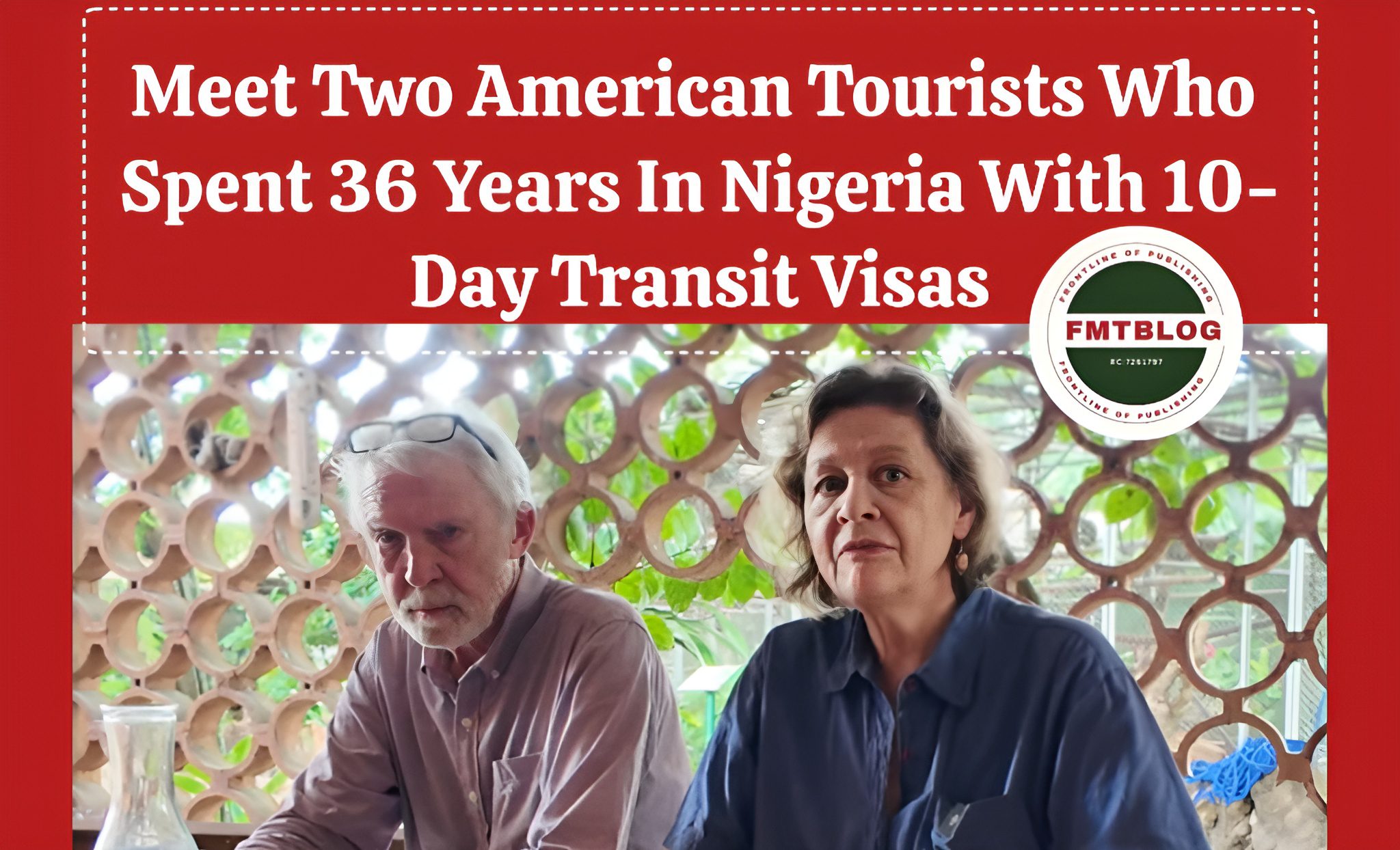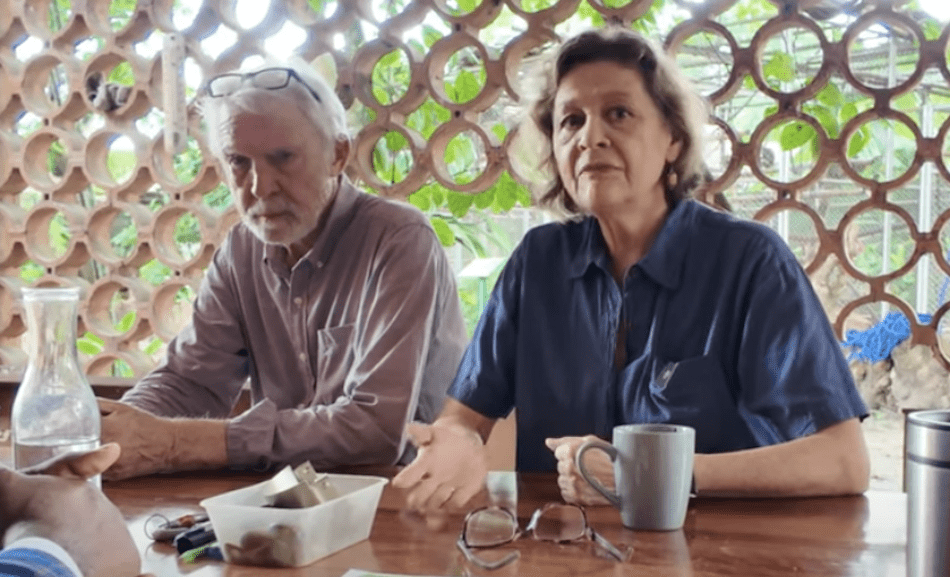
Two American tourists, Liza Gatsby and Peter Jenkins, shared their remarkable story of how they ended up spending over 36 years in Nigeria, far beyond their initial 10-day transit visas granted in 1988.

In a recent interview with content creator David Nkwa, the tourists revealed that their extended stay in Nigeria was not part of their original plan.
They were captivated by the country’s unique opportunities in scientific research, particularly in wildlife conservation, as well as the impressive infrastructure, warm hospitality of the Nigerian people, and the favorable living conditions that surpassed those in America at the time.

“I’ll tell you what I like about Nigerians. Okay, that’s what makes Nigeria different from every other country in Africa. They would say ‘hey! Oyinbo, come in na, sit down, make we talk. Make I go buy you drink.’ That is the difference between Nigeria and the rest of Africa.
“There were a lot of interesting opportunities in areas of Science and Wildlife Conservation that we became involved in, and we’re still here 36 years later. We arrived with a 10-day transit visa, and we have been here for 36 years.
“We founded a nonprofit organisation called Pandas that ranches monkey drills in Bano and Calabar in Cross River State. I don’t think that one species is more important than another, just like I don’t think that human beings are more important than drills or elephants are more important than whales;I believe that all living beings possess equal value.
The drill is a rare and endangered species in Africa, and it is one of those animals that one might not expect to encounter during a trip across the continent. As I was traveling with my Wildlife Field Guide, I would often look at the pictures of the drill and think about how unlikely it was that I would ever see one in person.
When asked why they chose Calabar as their destination, Jenkins explained that they had conducted thorough research and discovered that, aside from Cameroon, Calabar was another location where monkey drills could be found.
They emphasized that no scientist or tourist had known about the presence of these animals in the area until 1987, when they consulted with the local community and secured funding to create a habitable environment for the conservation of these rare monkeys and other animals, including giraffes.
Jenkins added, “I love Nigeria, this is a great place. Come and live in Calabar and be at rest.When we got here, the population of Nigeria in the early ’90s and the late ’80s was around 65 million.
“The amount of natural resources that were still intact was extraordinary, and the density of wildlife generally in the forest was better compared to today. In fact, it’s appallingly low now, but in those days, this was a wonderful place to do research.
Communities were very welcoming in those days; life was cheap; here, diesel, which is what our Land Rover ran on, was 35 Kobo, and with 29 kobo to the market, you would come back with two heavy bags with change in the pocket.
“We were comfortable and found Nigeria habitable. It was the best value country on this continent by far. The food was cheap, the road was perfect. There was no gallop deeper than a bottle cap.”
Meanwhile, Gabsty respectfully highlighted the need to address the apparent lack of patriotism among many Nigerians. He expressed concern over the growing neglect of the country’s rich culture, heritage, identity, music, traditional herbs, and healing practices.
“Nigerians don’t have pride in Nigeria’s natural heritage. I think that’s a big issue because that’s what it takes to try to make a difference. People don’t take pride in their cultural identity, language, traditional herbs, and healing.
“There was this huge wealth of knowledge when we came here on traditional healing and herbs from the forest, and that was another thing that put value on the natural resources here, but which of these old herbalists have an apprentice who is learning from them and when these old guys are gone, all that knowledge is going to be lost?
JOIN THE CONVERSATION– → Telegram | X/Twitter | Facebook | WhatsApp|WhatsApp Channel|Mobile App|Instagram
“You go to the market now; we see herbal teas and herbal cures imported from China. How do we know that those things work? What’s wrong with our traditional ones here?” She queried.
Exercepted from Punchng



